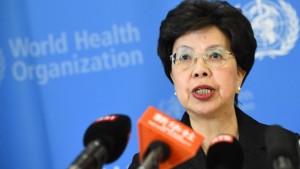WHO Director-General, Margaret Chan said “Not only are ways to combat climate change already known and well-documented, they can bring important health gains.” As WHO’s new series of climate change and health country profiles illustrate, investments in low-carbon development, clean renewable energy, and strengthening climate resilience, are also investments in health. Chan said that Implementing proven interventions to reduce emissions of short-lived climate pollutants, like black carbon and methane, for example achieving higher vehicle emissions and efficiency standards, would be expected to save approximately 2.4 million lives a year and reduce global warming by about 0.5°C by 2050.
She said “Placing a price on polluting fuels to compensate their negative health impacts would be expected to cut outdoor air pollution deaths by half, reduce carbon dioxide emissions by more than 20 per cent, and raise approximately US$ 3 trillion per year in revenue – over half the total value of health spending by all of the world’s governments. “Strengthening health resilience to climate risks, including measures such as early-warning systems for more frequent and severe heatwaves, and protection of water, sanitation, and hygiene services against floods and droughts, would ensure that recent progress against climate-sensitive diseases, is not slowed or reversed.
Chan added that the United Nations Climate Change Conference is the time for the health community to lend their voice to the international climate discussion and ask countries to come together and make bold commitments to protect our planet and the health of current and future generations.
Source: Leadership Online

 The World Health Organisation (WHO) has adviced that if Nigeria put measures to reduce climate pollutants, it could prevent 70 000 premature deaths per year from outdoor air pollution, from 2030 onwards. According to WHO estimates, climate change is already causing tens of thousands of deaths every year – from shifting patterns of disease, from extreme weather events, such as heat-waves and floods, and from the degradation of air quality, food and water supplies, and sanitation.
The World Health Organisation (WHO) has adviced that if Nigeria put measures to reduce climate pollutants, it could prevent 70 000 premature deaths per year from outdoor air pollution, from 2030 onwards. According to WHO estimates, climate change is already causing tens of thousands of deaths every year – from shifting patterns of disease, from extreme weather events, such as heat-waves and floods, and from the degradation of air quality, food and water supplies, and sanitation. 




